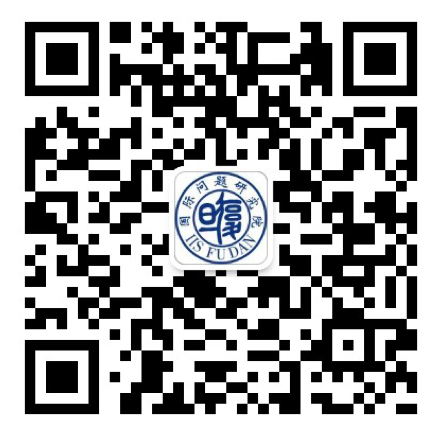Taiwan is set to join Japan’s memorial ceremonies next month for the 80th anniversary of the Hiroshima and Nagasaki atomic bombings, marking the island’s first participation in the annual events.
Observers said Beijing was likely to take a dim view of the matter, though the scale of its response might depend on the rank of the Taiwanese attendees.
Nagasaki mayor Shiro Suzuki said on Saturday that the city had accepted Taiwan’s request to attend its August 9 ceremony in memory of the victims of the 1945 US bombing, reversing a previous decision.
The city, which triggered controversy last year for excluding Israel because of its actions in the Gaza Strip, has invited all countries and regions with diplomatic missions or UN representative offices in Japan to this year’s event.
Japanese media reports said although Suzuki had asserted in May that Taiwan did not fall into either of those categories, the island’s expression of desire to attend the August 9 ceremony had prompted the city to consider ways to accommodate its request.
Taiwan’s foreign ministry told local media that the island was looking forward to taking part in the memorial and would decide whom to send once a formal invitation was received.
Hiroshima also added Taiwan to its own August 6 peace memorial notification list for the first time, having sent out an “information letter” in May, according to Japanese media.
“The city decided there was no reason to exclude Taiwan, given the purpose of conveying the ‘spirit of Hiroshima’, which is a wish for the coexistence and prosperity of humankind,” Japan’s Asahi Shimbun reported citing sources on May 16.
Nagasaki authorities did not give a reason for their change in position.
Beijing, which sees Taiwan as part of China to be reunited by force if necessary, was likely to react negatively, diplomatic observers said, warning also of potential friction with Tokyo.
However, they added that the extent of any fallout would hinge on the seniority of the Taiwanese representatives at next month’s events.
Zheng Zhihua, research associate professor at Shanghai Jiao Tong University’s Centre for Japanese Studies, said Taiwan’s presence was likely to trigger displeasure from Beijing.
“Taiwan’s presence in the events presents a prime opportunity for it to bolster its international presence. The symbolic weight of such an event is something Beijing is unlikely to tolerate,” Zheng said.
Most countries, including Japan and its treaty ally the United States, do not recognise Taiwan as an independent state, but are opposed to any attempt to take the self-governed island by force.
“If Taiwan ultimately sends a representative from its foreign ministry or central government, the matter could become highly sensitive,” Zheng cautioned.
Wang Guangtao, an associate professor at the Centre for Japanese Studies, Fudan University, said the situation was unlikely to benefit China-Japan relations, especially given the sensitive timing of the 80th anniversary of the end of World War II.
China views the anniversary as a critical moment to highlight its own wartime suffering under Japanese occupation and assert its historical perspective.
“A leaders’ meeting between China, Japan, and South Korea may take place later this year. Tokyo is likely to seek to avoid any scenario where Taiwan’s presence disrupts the recent momentum in thawing its own relations with Beijing,” Wang said.
The coming weeks were likely to “require careful coordination and strategic negotiations among all parties involved to manage the situation”, he added.
China and Japan have deep-seated historical disputes, including wartime grievances, territorial conflicts and issues relating to Taiwan. However, relations have been on the mend since Shigeru Ishiba became Japan’s prime minister last October. Last month, Beijing partially lifted a ban on Japanese seafood imports imposed nearly two years ago over Japan’s release of treated waste water from its damaged Fukushima nuclear plant.
Taiwan has become a new flashpoint in relations due to increased visits by Taiwanese politicians to Japan and growing unofficial exchanges between the two sides.
Tokyo reportedly blocked former Taiwanese leader Tsai Ing-wen from attending a memorial service for former prime minister Shinzo Abe last July, citing concerns over a potential backlash from Beijing.
In March this year, Chinese Foreign Minister Wang Yi said that some people in Japan were secretly colluding with “Taiwan independence” forces. “To provoke trouble in the name of Taiwan is to invite trouble for Japan,” he warned.
The United States’ atomic bombings of Hiroshima and Nagasaki at the end of World War II remain the only use of nuclear weapons in an armed conflict.
Some 140,000 people were killed after Hiroshima was struck on August 6 and around 74,000 in Nagasaki three days later.
Six days after the Nagasaki bombing, Japan announced its surrender to the Allied forces. The official surrender was signed on September 2, ending the war.
Beijing will hold a military parade on September 3 as part of ceremonies commemorating the 80th anniversary of China’s victory over the Japanese invasion, marked by the surrender of the Japanese army in China to the Chinese government on that day.
Despite the lack of formal diplomatic relations, Taiwan and Japan enjoy strong unofficial ties that are rooted in shared democratic principles and close economic partnerships.
Parliamentary exchanges also play a vital role in this relationship, with Japanese lawmakers frequently visiting the self-governed island.






